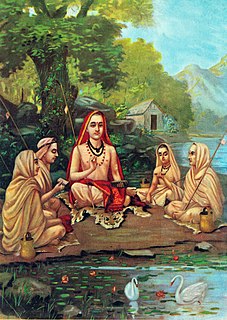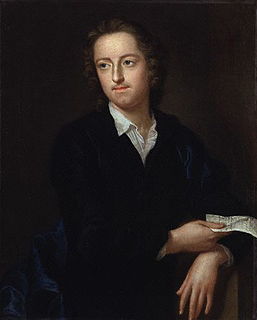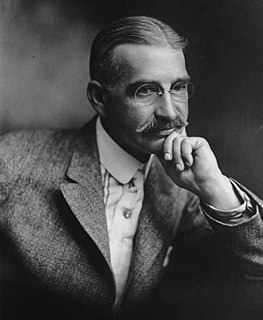A Quote by Aeschylus
For the poison of hatred seated near the heart doubles the burden for the one who suffers the disease; he is burdened with his own sorrow, and groans on seeing another's happiness.
Related Quotes
When a jealous person sees signs of other people's success and good fortune, his heart is pierced with envy. But someone who has learned to rejoice in the good fortune of others experiences only happiness. Seeing another person's beautiful house or attractive partner immediately makes him happy - the fact that they are not his own is irrelevant.
There are three kinds of love;
unselfish, mutual, and selfish.
The unselfish love is of the highest kind;
The lover only minds the welfare of the beloved and does not care for his own sufferings.
In mutual love the lover not only wants the happiness of his beloved;
but has an eye towards his own happiness also. It is middling.
The selfish love is the lowest. It only looks towards its own happiness,
no matter whether the beloved suffers weal or woe.
I wondered why it had to be so poisonous. Oleanders could live through anything, they could stand heat, drought, neglect, and put out thousands of waxy blooms. So what did they need poison for? Couldn't they just be bitter? They weren't like rattlesnakes, they didn't even eat what they killed. The way she boiled it down, distilled it, like her hatred. Maybe it was a poison in the soil, something about L.A., the hatred, the callousness, something we didn't want to think about, that the plant concentrated in its tissues. Maybe it wasn't a source of poison, but just another victim.
Does the open wound in another's breast soften the pain of the gaping wound in our own? Or does the blood which is welling from another man's side staunch that which is pouring from our own? Does the general anguish of our fellow creatures lessen our own private and particular anguish? No, no, each suffers on his own account, each struggles with his own grief, each sheds his own tears.
The difference between shallow happiness and a deep, sustaining joy is sorrow. Happiness lives where sorrow is not. When sorrow arrives, happiness dies. It can't stand pain. Joy, on the other hand, rises from sorrow and therefore can withstand all grief. Joy, by the grace of God, is the transfiguration of suffering into endurance, and of endurance into character, and of character into hope--and the hope that has become our joy does not (as happiness must for those who depend up on it) disappoint us.
To each his suff'rings; all are men, Condemn'd alike to groan,- The tender for another's pain, Th' unfeeling for his own. Yet ah! why should they know their fate, Since sorrow never comes too late, And happiness too swiftly flies? Thought would destroy their paradise. No more; where ignorance is bliss, 'T is folly to be wise.
But that isn't right. The King of Beasts shouldn't be a coward,'" said the Scarecrow. 'I know it,' returned the Lion, wiping a tear from his eye with the tip of his tail. 'It is my great sorrow, and makes my life very unhappy. But whenever there is danger, my heart begins to beat fast.' 'Perhaps you have heart disease,' said the Tin Woodman. 'It may be,' said the Lion.






































